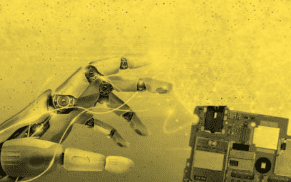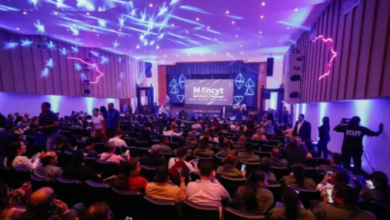Christian who wants to influence AI positively, should act now

With itchy fingers, I was looking at my screen this week. OpenAI, one of the leading artificial intelligence companies, is currently rolling out the Sora model. And it’s big.
What does Sora do? It can convert simple text into high-quality video. So if you say, Make a detailed video of an ant walking through its nest underground while interacting with other ants, you get exactly that. And sometimes with a quality that the BBC could not match in its best nature documentaries.
Others let their strangest fantasies loose on Sora (which, by the way, is not yet open to the general public). I have seen examples of a giant jellyfish floating through a big city at dusk, of a man giving a bowl of milk to a huge cat on a throne, of a diver exploring a sunken spaceship, of a turtle whose shell is made of glass and who has a little garden in his body, with a small golden crown on top of his shell as he walks through an ultra-realistic sandy landscape. Even my fiercest fever dreams are less overbearing.
Nevertheless, I loved seeing these examples and am impressed by this new milestone when it comes to AI. I would like to be able to look at these kinds of surprising technological developments in a positive way, but can I? After all, how many warning stories have been made about technology taking over our roles? About a world where “we”, humanity, will have to take on a super-powerful but impersonal (or even anti-personal?) and non-religious (or even anti-religious?) digital “them”?
In short, I am looking for well-founded reasons why we can approach AI with expectation – if only to avoid a situation where Christians will soon start warning en masse against AI, only to use it as massively as uncritically, not much later. That is the trap into which orthodox Christians have fallen en masse when it comes to smartphones. Saying one thing and doing another not much later is not a good Christian witness.
Einstein
Anyway, my quest does not yet make it so easy for me to be unconcernedly happy with AI. Christians have been particularly vocal about their concerns on this issue. Emmanuel Rutten, a philosopher at the Free University in Amsterdam, points out in an article on ChatGPT that dependence on this programme ultimately means a setback in the development of humanity.
Dit omdat ChatGPT, net als Sora, niet echt creatief kan zijn. „De menselijke geest kan verbanden leggen tussen ogenschijnlijk volstrekt niet gerelateerde gegevens om zo uit het al bekende te springen en nieuwe ideeën te creëren die voorheen niet bestonden. ChatGPT kan dit niet. Het kan louter samenstellingen maken van wat wij al gedacht hebben.” Met andere woorden: een te sterke afhankelijkheid van AI staat de Einsteins van deze wereld in de weg die wél de sprong naar volstrekt nieuwe ideeën kunnen maken.
An even stronger objection is that people will unwittingly approach AI programmes as real personalities. There are already people using ChatGPT as a solution to their loneliness.
American Christian and philosopher Jordan Joseph Wales points out that this removes a unique aspect of being human: a human being is capable of giving of himself, of sharing from his inner self. Giving ourselves to others is where, he says, we can reflect God above all, Who gave Himself to the world. A social AI robot cannot do that – it has no inner self, no love to receive and even less love to share.
Image bearer
But all this does not mean we should do nothing with it. On the contrary, there are several initiatives, such as the platform AI and Faith, that advocate bringing the ethical wisdom of religion into the discussion on AI just now. Theologian Maaike Harmsen wrote the book “Thank God for technology” (2022) and one of the things she argues in it is precisely how important it is to bring theology and technology into conversation with each other. If we don’t, we risk the modern view of man becoming increasingly technical. That a human being is seen as a kind of computer that also falters; that gets less done than AI. In such a view of man, the less intelligent someone is the smaller his value. Harmsen rightly countered that all humans are image-bearers of God, regardless of their level of intelligence.
If Christians do not participate fully in the ongoing reflection on AI, this issue may just snowball.
Staying away from this field of tension is not an option for Christians. Those who want to exert a positive influence on the development of AI must do so now – not when it has run out of steam.
Is that enough reason to stay actively involved in AI?
For me, it is. After all, Christian thinking through and influencing current issues can be fully seen as part of the creation mission. Good stewards don’t just mind the shop; they actively participate in the Kingdom that is to come.
And admittedly, there is also the appeal of that weird turtle with its glass shell. I can’t wait to see what else Sora will bring us.


